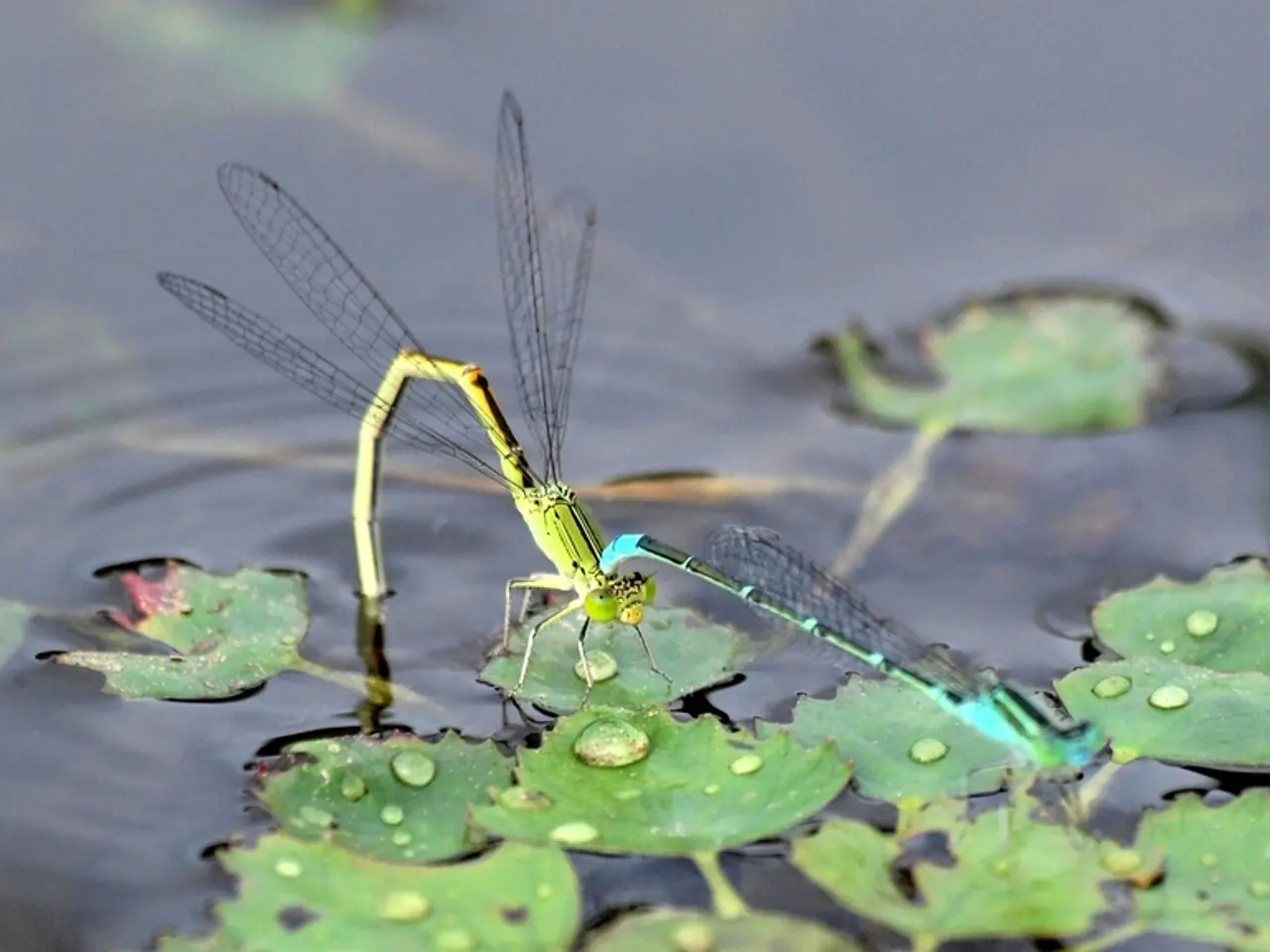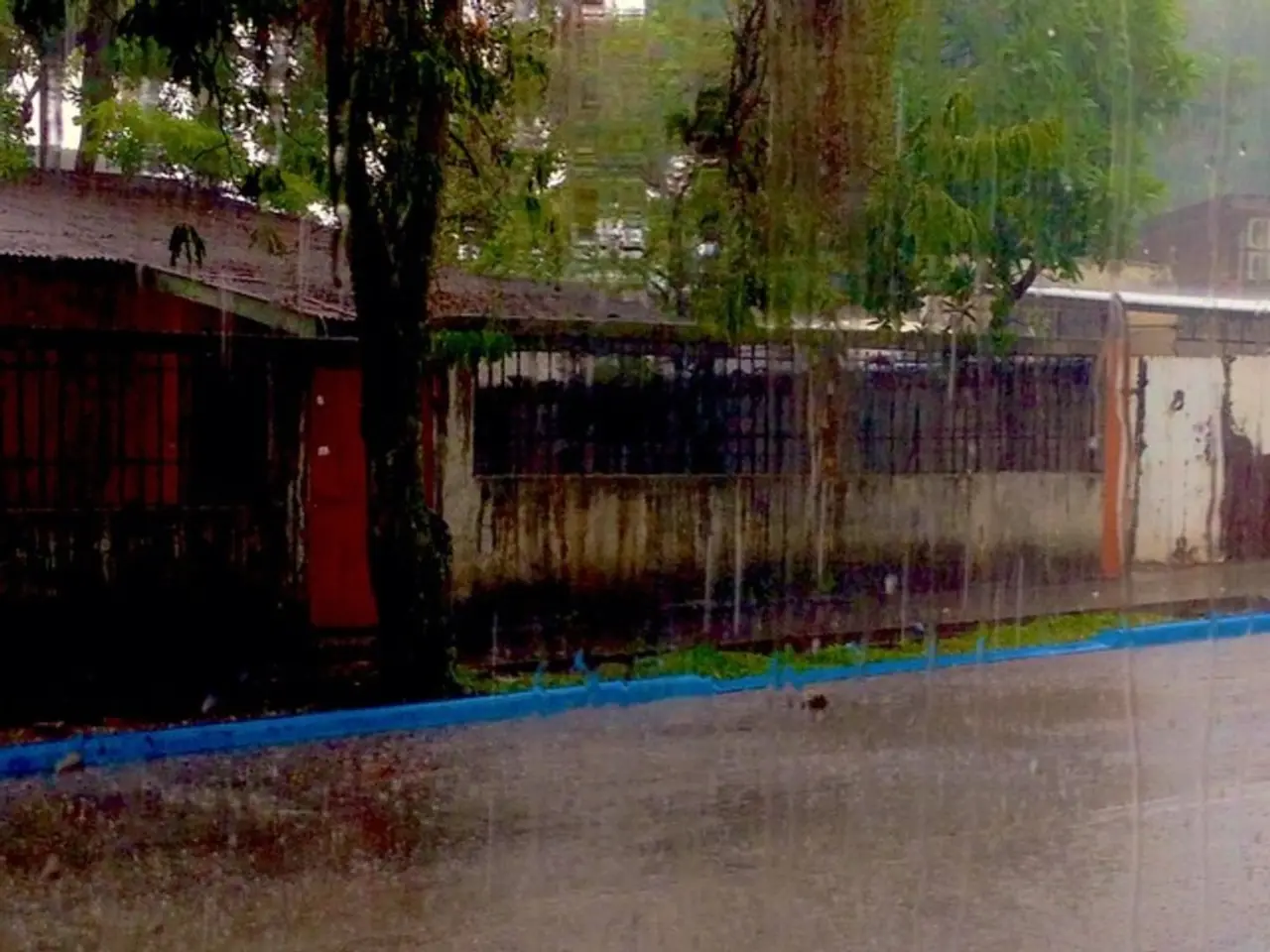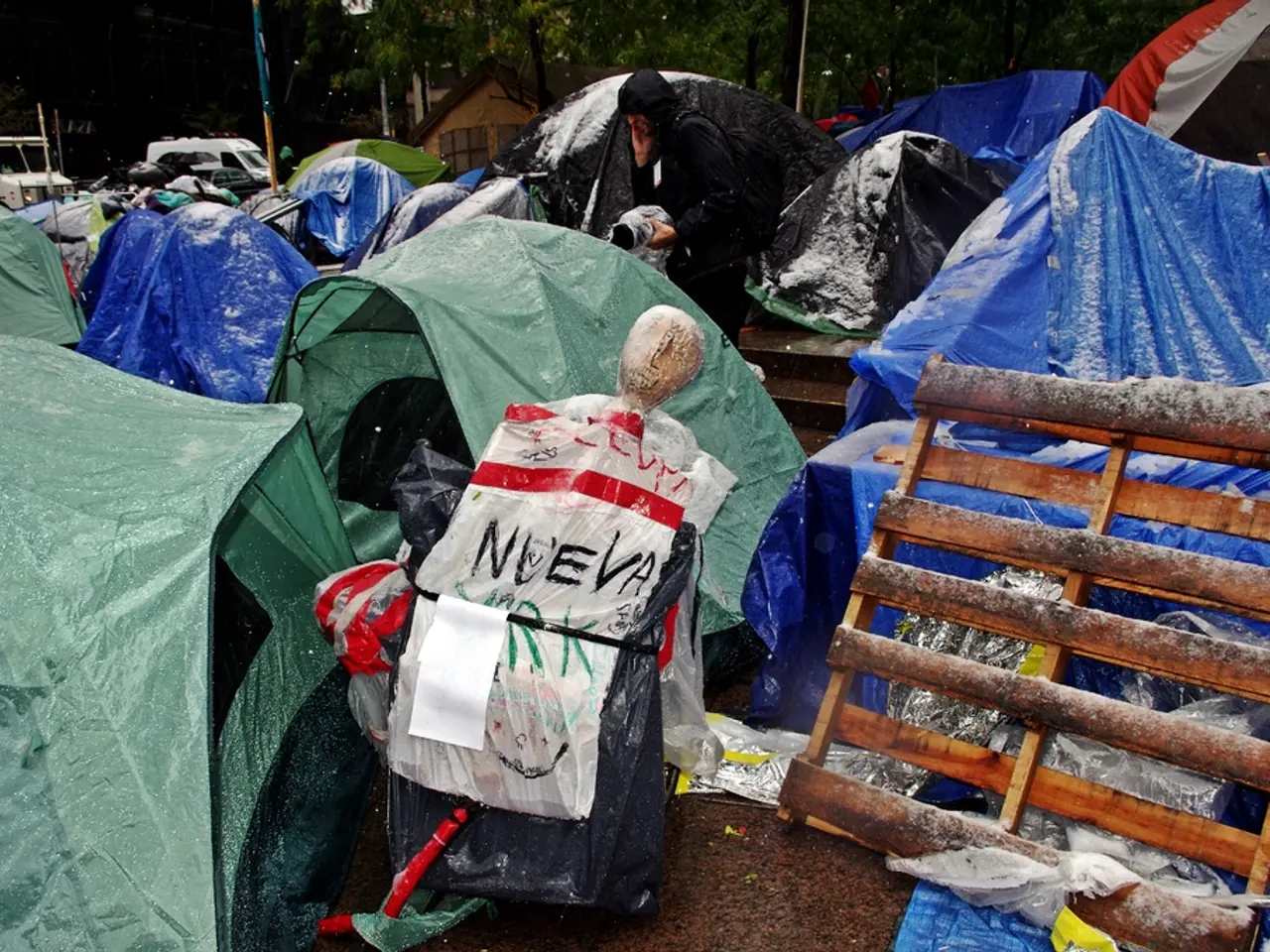Riverbanks along the Upper Rhine witness emergence of midge larvae due to climate shift - Rhine region experiences mosquito larvae activation due to climate shift
In the Upper Rhine region, a potential mosquito problem is looming on the horizon, according to the Communal Action Group for Combating the Mosquito Nuisance (Kabs) in Speyer. The group has reported observations of mosquito larvae hatching and breeding activity outside of the classic riverine forests.
The weather along the Upper Rhine has recently changed, with increased rainfall and a flood wave in the riverine forests creating ideal conditions for mosquito larvae development. Experts are currently conducting dip counts to determine the number of mosquito larvae, and if a critical value is exceeded, control measures will be carried out using the biological active ingredient Bti.
The extent to which Pfalz, Rheinhessen, or South Hesse will follow depends on the development. In South Baden, the first helicopter deployments for the application of this substance could take place as early as Friday or Saturday.
However, riverine mosquitoes are now taking advantage of the wet conditions to develop further. This could potentially lead to a rise in mosquito populations, as increased rainfall and warmer temperatures typically accelerate larval development.
Potential control measures include removing or treating standing water sources, using larvicides or biological controls such as introducing natural mosquito predators, community awareness and monitoring programs, and application of insecticides in affected areas if populations become problematic.
For the most accurate and updated predictions specific to Speyer and the Upper Rhine after recent weather events, local environmental, health authorities, or entomology research groups would be the best sources. Kabs emphasizes that early and targeted control is crucial to prevent a larger mosquito nuisance in the coming weeks.
Kabs is a registered non-profit association made up of municipalities in Rhineland-Palatinate, Baden-Württemberg, and Hesse. The flooding of large areas in the riverine forest has activated numerous breeding sites, making the need for control measures even more urgent.
Stay tuned for more updates on this developing situation. For the latest information, it is recommended to consult local authorities or entomology research groups.
- Due to the altered weather patterns in the Upper Rhine region, including increased rainfall and flooding, the development of mosquito larvae has been accelerated, potentially leading to a surge in mosquito populations, a matter of concern for environmental scientists studying climate-change's impact on the environment.
- To combat this potential mosquito problem, Kabs, in coordination with local environmental and health authorities, may implement control measures such as removing or treating standing water sources, using larvicides or biological controls, community awareness and monitoring programs, and application of insecticides in affected areas, emphasizing the importance of early and targeted control to prevent a larger mosquito nuisance, as per the principles of environmental-science.








